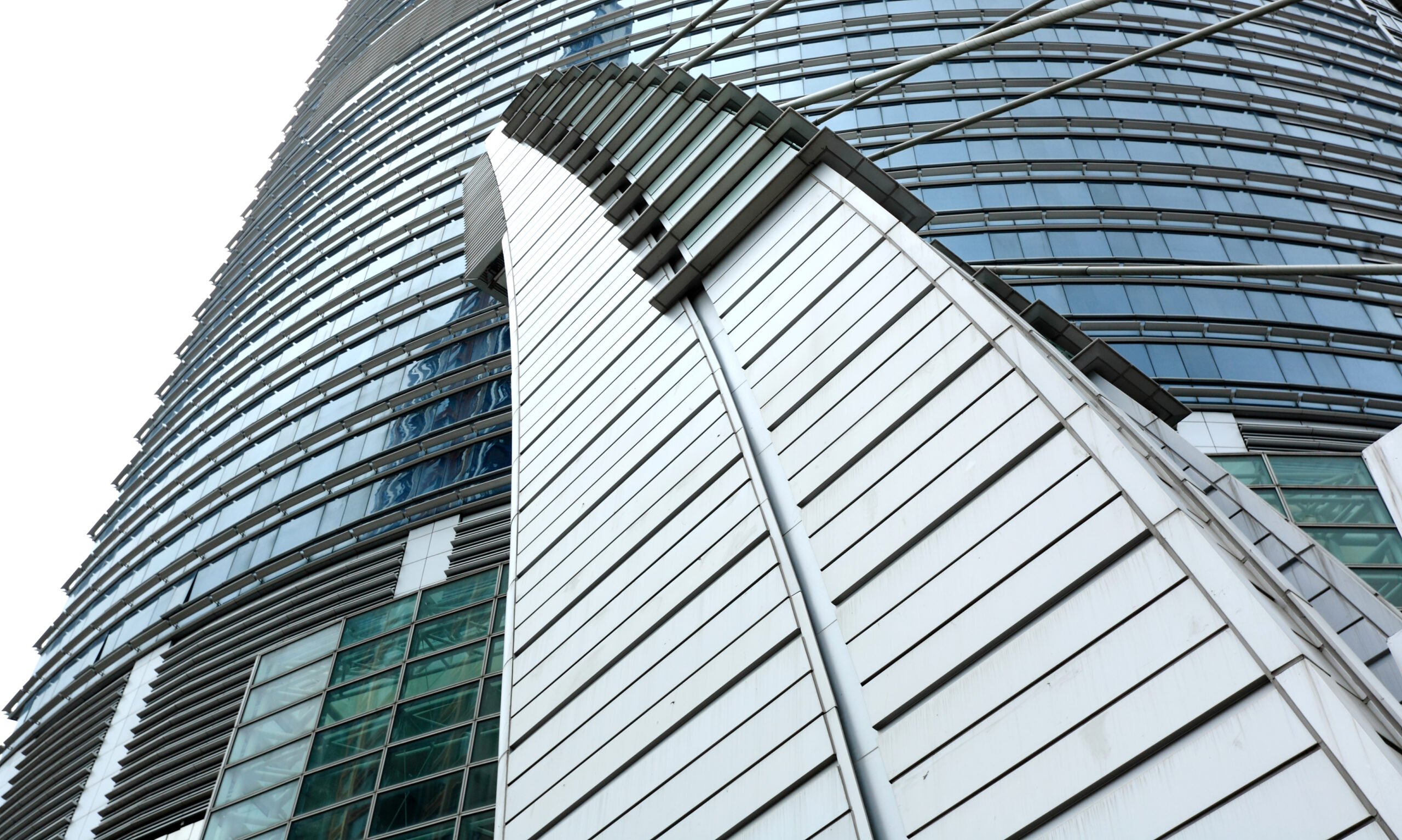1. What is the law applicable to arbitration in Paraguay?
The law regulating arbitration, both domestic and international, is Law 1879/2002, which incorporates with minor modifications the Model Arbitration Law of the United Nations Commission on International Trade Law (UNCITRAL). Therefore, Paraguayan arbitration law follows international arbitration standards, which makes Paraguay an attractive venue for international arbitration.
2. In what cases is a dispute considered international under Paraguayan law?
According to art. 3.c of Law 1879/02, a dispute is international when: a) The domiciles of the parties are in different countries at the time they formalize the arbitration agreement; b) The place where the performance is to be rendered or where the subject matter of the dispute is most closely related is not a country in which one of the parties is domiciled.
3. Are there mandatory provisions that must be applied to all arbitration proceedings regardless of the will of the parties?
Paraguayan arbitration law gives the parties flexibility to adapt the procedure to their needs. The only limit to this power is that both parties must be treated equally and have the same opportunity to assert their rights.
4. Has Paraguay ratified the New York Convention? If so, has it made any reservations to it?
Yes, it has ratified the New York Convention. It has not made any reservations to it.
5. What other conventions or treaties related to arbitration has Paraguay signed?
Paraguay is also a party to the Inter-American Convention on International Commercial Arbitration and the Inter-American Convention on the Extraterritorial Effectiveness of Foreign Judgments and Arbitral Awards. As a member of the Southern Common Market (MERCOSUR), Paraguay has ratified the MERCOSUR International Commercial Arbitration Agreement (Decision of the Common Market Council No. 3/98).
Arbitration agreement
6. What are the requirements for the validity of an arbitration agreement?
The arbitration agreement must be in writing. This requirement is fulfilled in many ways. The arbitration agreement may be contained: a) in a single document signed by both parties; b) in an exchange of letters or telegrams; c) in an exchange of statements of claim and defense in which one party affirms the existence of the arbitration agreement and the other party does not deny it. In addition, a reference in a contract to a document containing an arbitration agreement is valid as long as the contract is in writing and the reference implies that the arbitration agreement is part of the contract.
7. How are arbitration agreements enforced?
If a dispute that is subject to an arbitration agreement has been brought before a court, the court is required to refer the parties to arbitration if either party invokes the arbitration agreement, unless the court determines that the agreement is null and void, inoperative or incapable of being enforced.
8. Is there any provision in the Paraguayan arbitration law regarding the severability of the arbitration agreement?
Yes. Art. 19 of Law 1879/02 provides that, for the purposes of the arbitral tribunal's jurisdiction to decide on its own competence, the arbitration agreement is considered an agreement independent of the main contract. Furthermore, the said article provides that the decision of the arbitral tribunal that the main contract is null and void does not imply ipso iure -i.e., by operation of law- that the arbitration agreement is also null and void.
Arbitral Tribunal
9. Does the law impose any restrictions on the appointment of arbitrators?
No. The parties are free to choose the arbitrators, provided that they are impartial and independent, since partiality and lack of independence are grounds for challenging an arbitrator.
10. Are there any supplementary rules regarding the appointment of arbitrators?
Sí. Por ejemplo, en ausencia de un acuerdo de las partes con respecto al número de árbitros, el tribunal arbitral debe estar compuesto de tres árbitros.
En cuanto al nombramiento de los árbitros, la ley establece que si el tribunal arbitral está compuesto por tres árbitros, cada parte nombrará un árbitro y dichos árbitros designarán al tercer árbitro. En caso de que una de las partes no designe un árbitro dentro de los treinta días a partir de la fecha en que dicha parte recibió una solicitud de la otra parte para realizar dicho nombramiento o si los dos árbitros no llegan a un acuerdo para designar al tercer árbitro dentro de los treinta días posteriores a la fecha en el que fueron nombrados, el tribunal hará el nombramiento dentro de los siete días, a petición de cualquiera de las partes.
En un arbitraje con un solo árbitro, si las partes no llegan a un acuerdo para designar al mismo, el tribunal lo hará a petición de cualquiera de las partes dentro de los siete días.
11. ¿Cuáles son las causales para recusar a un árbitro?
Son la parcialidad, la falta de independencia y no contar con las calificaciones convenidas por las partes.
12. ¿Cuál es el procedimiento para recusar a un árbitro?
Las partes son libres de acordar el procedimiento para recusar a un árbitro. En ausencia de tal acuerdo, la parte que desee recusar a un árbitro presentará un escrito al tribunal arbitral explicando los motivos de tal recusación dentro de los quince días siguientes a la fecha de la constitución del tribunal arbitral o a partir de la fecha en la que la parte tomó conocimiento de la causal de recusación del árbitro. El tribunal arbitral decidirá acerca de la recusación al árbitro.
Si se rechaza la recusación, la parte puede solicitar al Juez de Primera Instancia en lo Civil y Comercial que dicte una decisión sobre la recusación, dentro de los siguientes quince días desde la fecha de la notificación de la decisión del tribunal arbitral que rechazó la recusación. El juez debe tomar una decisión dentro de los siete días.
Procedimiento arbitral
13. ¿Cómo se plantea una objeción a la competencia del tribunal arbitral?
La Ley 1879/02 establece que el tribunal arbitral es competente para decidir sobre su competencia y sobre las excepciones relativas a la validez y existencia del acuerdo de arbitraje. Es decir, la ley contempla el llamado Principio del Kompetenz-Kompetenz.
La excepción de incompetencia se opondrá, a más tardar, al momento de contestar la demanda. El hecho de que cualquiera de las partes haya designado un árbitro o haya participado en su nombramiento no impide que dicha parte oponga la excepción de incompetencia.
El tribunal arbitral puede decidir sobre la excepción de incompetencia, ya sea como una cuestión preliminar o al decidir acerca del fondo de la controversia. Si el tribunal arbitral decide la excepción de incompetencia como una cuestión preliminar, cualquiera de las partes puede solicitar al Juez de Primera Instancia en lo Civil y Comercial que se pronuncie sobre el asunto dentro de los treinta días desde la notificación de la decisión. El tribunal debe emitir una decisión dentro de los siete días y la misma no está sujeta a apelación. Mientras la decisión del Juez sobre la cuestión de competencia esté pendiente, el tribunal arbitral podrá continuar con el procedimiento, pero no podrá emitir el laudo.
14. ¿Qué facultades tienen los árbitros para conducir el procedimiento arbitral?
Con sujeción a las disposiciones de la Ley 1879/02 y al acuerdo de las partes sobre la forma en que se llevará a cabo el procedimiento, el tribunal arbitral puede conducir el procedimiento arbitral de la forma que considere apropiada. Cuenta con la facultad de otorgar medidas cautelares, de decidir acerca de la admisibilidad, relevancia y peso de las pruebas, de nombrar peritos, entre otras.
15. ¿Cuál es el idioma del arbitraje en caso de que las partes no lo hayan pactado?
No hay un idioma predeterminado. En ausencia de un acuerdo de las partes sobre el particular, el tribunal arbitral cuenta con la facultad para realizar dicha determinación.
16. ¿Existen normas acerca de la producción de las pruebas?
La ley de arbitraje contempla normas generales, pero las partes son libres de determinar normas más específicas. Si no lo hicieren, el tribunal arbitral tiene la facultad de hacer tal determinación.
17. ¿Se encuentra establecida por ley la confidencialidad del procedimiento arbitral?
No. Si las partes no acuerdan la confidencialidad del procedimiento arbitral, tal obligación no existe.
18. ¿Quién establece las costas del procedimiento arbitral?
El tribunal arbitral establece las costas del procedimiento arbitral (honorarios de los árbitros, de los peritos, gastos administrativos —en los casos de una institución— y gastos de viaje, por citar algunos) Lo hace siguiendo las reglas elegidas por las partes sobre el particular o basadas en las disposiciones supletorias de la Ley 1879/02.
De acuerdo con la Ley 1879/02, el tribunal arbitral fijará los honorarios de los árbitros en función al monto en cuestión, la complejidad de la controversia, el tiempo empleado por los árbitros y cualquier otra circunstancia relevante para el caso.
19. ¿Pueden los tribunales judiciales intervenir en el procedimiento arbitral?
Sí, pero sólo en las situaciones específicas establecidas por la Ley 1879/02. Entre ellas se encuentran: a) el nombramiento de árbitros; b) decidir acerca de las recusaciones a los árbitros; c) remoción de árbitros; d) dictar medidas cautelares antes de la constitución del tribunal arbitral y ejecutar las dictadas por el tribunal arbitral una vez que el mismo esté constituido; e) auxiliar a las partes en la producción de las pruebas; f) decidir acerca de la nulidad del laudo arbitral; g) ejecutar el laudo arbitral.
Derecho aplicable
20. ¿Cómo se determina el derecho aplicable a la controversia?
Lo determinan las partes. Si no han hecho tal determinación, entonces el tribunal arbitral determinará el derecho aplicable con arreglo a las normas de conflicto que estime aplicables. En todos los casos, el tribunal arbitral tendrá en cuenta los términos del contrato y los usos comerciales.
21. ¿Está el tribunal arbitral autorizado a decidir un caso en base a la equidad?
Sí, pero solo si las partes lo han autorizado expresamente.
Laudo arbitral
22. ¿Cuáles son los requisitos de un laudo arbitral?
El laudo arbitral debe constar por escrito y debe ser firmado por los miembros del tribunal arbitral. Si el tribunal arbitral está compuesto por más de un árbitro, sólo se requiere de la firma de la mayoría de ellos, siempre que se explique en el laudo arbitral la razón por la cual uno de los árbitros no firmó el laudo.
El laudo arbitral también debe indicar la fecha y el lugar del arbitraje, ya que se considerará que el mismo se llevó a cabo en ese lugar.
El laudo debe ser fundado, a menos que las partes acuerden que esto es innecesario o que el tribunal dicte un laudo que documente los términos de un arreglo al que han arribado las partes.
23. ¿Existe un límite de tiempo para que el tribunal arbitral dicte el laudo?
La ley no establece un límite para que el tribunal arbitral dicte el laudo. Sin embargo, las partes pueden establecer dicho límite. Además, los reglamentos de algunas instituciones arbitrales establecen un límite de tiempo para que el tribunal arbitral dicte el laudo.
24. ¿Es el laudo definitivo y vinculante?
Sí, el laudo es definitivo y vinculante, y no está sujeto a apelación. El único recurso contra el laudo arbitral es el recurso de nulidad.
25. ¿Cuáles son las causales para anular el laudo arbitral?
El Tribunal de Apelación en lo Civil y Comercial anulará el laudo si la parte que solicita la nulidad del laudo prueba cualquiera de las siguientes causales:
• Una de las partes en el acuerdo de arbitraje estaba afectada por alguna incapacidad, o que dicho acuerdo no es válido en virtud de la ley a la que las partes lo han sometido, o si nada se hubiese indicado a ese respecto, en virtud de la legislación paraguaya.
• No ha sido debidamente notificada de la designación de un árbitro o de las actuaciones arbitrales o no ha podido, por cualquier otra razón, hacer valer sus derechos.
• El laudo se refiere a una controversia no prevista en el acuerdo de arbitraje o contiene decisiones que exceden los términos del acuerdo de arbitraje; no obstante, si las disposiciones del laudo que se refieren a las cuestiones sometidas al arbitraje pueden separarse de las que no lo están, solo se podrán anular estas últimas.
• La composición del tribunal arbitral o el procedimiento arbitral no se han ajustado al acuerdo entre las partes, salvo que dicho acuerdo estuviera en conflicto con una disposición de la ley de arbitraje de la que las partes no pudieran apartarse o, a falta de dicho acuerdo, que no se han ajustado a la ley de arbitraje.
Además, el tribunal puede anular el laudo de oficio si:
• El objeto de la controversia no es susceptible de arbitraje.
• El laudo arbitral es contrario al orden público internacional o del Estado Paraguayo.
26. ¿Cuál es el procedimiento para anular el laudo?
La parte que interpone un recurso de nulidad debe indicar claramente las causales de nulidad y ofrecer toda la prueba que pretende producir. El órgano competente es el Tribunal de Apelación en lo Civil y Comercial del lugar en el que se dictó el laudo.
El Tribunal de Apelación correrá traslado a la otra parte, la que deberá contestar dentro de los cinco días. En la contestación, dicha parte ofrecerá todas las pruebas que pretende producir.
Una vez vencido el plazo e independientemente de que se haya presentado la contestación al traslado, el período probatorio se iniciará y no durará más de diez días. Si no existen pruebas que producir, el tribunal dictará sentencia dentro del plazo de diez días.
La prueba pericial, si corresponde, será presentada por un perito designado por el tribunal. No se admitirán más de tres testigos por cada parte. La declaración de los testigos puede realizarse fuera de la sede del tribunal.
Una vez que las partes hayan presentado todas las pruebas, el tribunal dictará sentencia dentro de los diez días. La misma es irrecurrible.
27. ¿Cuál es el derecho aplicable al reconocimiento y ejecución de un laudo arbitral extranjero?
Los laudos arbitrales extranjeros dictados en Estados signatarios de la Convención de Nueva York se reconocen y aplican de conformidad con las disposiciones de dicho tratado, ya que la Ley 1879/02 establece que los laudos arbitrales extranjeros se reconocerán de conformidad con los tratados que el Paraguay haya ratificado.
Si ningún tratado es aplicable, los laudos arbitrales extranjeros serán reconocidos y aplicados de conformidad con las disposiciones de la Ley 1879/02.
28. ¿Cuál es el procedimiento para el reconocimiento y la ejecución de las sentencias arbitrales extranjeras?
Un laudo arbitral extranjero, independientemente del país en el que se haya dictado, será vinculante y se ejecutará cuando se presente ante el tribunal competente. El tribunal competente es el Juzgado de Primera Instancia Civil y Comercial del domicilio de la persona contra la que se solicita el reconocimiento y la ejecución del laudo, o el del lugar de la ubicación de los bienes.
La parte que solicita la ejecución del laudo deberá presentar el laudo original debidamente autenticado, o una copia certificada del mismo, y el acuerdo de arbitraje o una copia debidamente certificada del mismo. Si el laudo o el acuerdo de arbitraje no están en español, la parte deberá presentar una traducción oficial de dichos documentos hecha por un traductor oficial.
29. ¿Cuáles son las causales para denegar el reconocimiento y la ejecución de un laudo arbitral extranjero?
Conforme a las disposiciones de la Ley 1879/02, las que son aplicables en caso de que un tratado internacional no sea aplicable, los motivos para denegar el reconocimiento y la ejecución de un laudo arbitral extranjero son los siguientes:
(a) a petición de la parte que solicita el reconocimiento y la ejecución, si esa parte proporciona al tribunal competente prueba de que:
(i) una parte del acuerdo de arbitraje estaba afectada por alguna incapacidad; o dicho acuerdo no es válido según la ley a la que las partes lo han sometido o, en su defecto, según la ley del Estado en el que se dictó el laudo;
(ii) la parte contra la cual se invoca el laudo no fue debidamente notificada del nombramiento de un árbitro o de las actuaciones arbitrales o no ha podido, por cualquier otra razón, hacer valer sus derechos;
(iii) el laudo se refiere a una controversia no prevista en el acuerdo de arbitraje o contiene decisiones que exceden los términos del acuerdo de arbitraje. No obstante, si las disposiciones del laudo que se refieren a las cuestiones sometidas al arbitraje pueden separarse de las que no lo están, se podrá otorgar reconocimiento y ejecución a las primeras;
(iv) la composición del tribunal arbitral o el procedimiento arbitral no se ajustaron al acuerdo de las partes o, en defecto de tal acuerdo, no estaba de acuerdo con la ley del Estado en el que se llevó a cabo el arbitraje; o
(v) el laudo aún no es obligatorio para las partes o ha sido anulado o suspendido por un tribunal del Estado en el cual, o conforme a cuyo derecho, se ha dictado el laudo; o
(b) si el tribunal determina que:
(i) el objeto de la controversia no es susceptible de arbitraje
(ii) el reconocimiento o la ejecución del laudo serían contrarios al orden público internacional o del Estado paraguayo.








